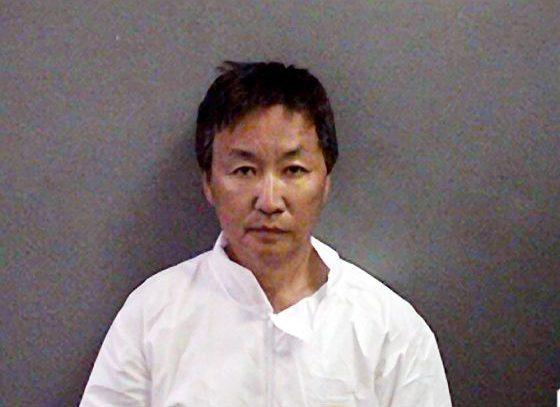- California Assembly OKs highest minimum wage in nation
- S. Korea unveils first graphic cigarette warnings
- US joins with South Korea, Japan in bid to deter North Korea
- LPGA golfer Chun In-gee finally back in action
- S. Korea won’t be top seed in final World Cup qualification round
- US men’s soccer misses 2nd straight Olympics
- US back on track in qualifying with 4-0 win over Guatemala
- High-intensity workout injuries spawn cottage industry
- CDC expands range of Zika mosquitoes into parts of Northeast
- Who knew? ‘The Walking Dead’ is helping families connect
Man convicted of killing Army veteran roommate faces 15-year sentence
SANTA ANA (CNS) – A 55-year-old man convicted of killing his roommate, an Iraq War veteran who was missing for about two weeks before her body was found in Modjeska Canyon, faces 15 years to life in prison when he is sentenced
today.
Kwang Chol Joy’s attorney contended there was no evidence he killed 36-year-old Maribel Ramos. But prosecutors said Joy’s actions after Ramos’ disappearance proved that “if he couldn’t have Maribel, he was going to make sure no one did.”
Senior Deputy District Attorney Scott Simmons told reporters that the verdict, reached July 29 after three days of deliberations, was the right call.
“It was a circumstantial evidence case from the onset,” Simmons said, referring to the difficulty in prosecuting a case without direct evidence proving even a cause of death. “I think the jury did the right thing.”
Simmons argued for murder in the first or second degree, but jurors also had the option of voluntary manslaughter.
“I think the evidence supported second-degree murder,” the prosecutor said. “It was a unique case in that we didn’t have a cause of death.”
The lack of a cause of death meant jurors had to wade through many legal options and voluminous jury instructions, Simmons said.
One juror said she told Simmons and defense attorney Adam Vining that the panel worked hard to apply the “beyond a reasonable doubt” standard.
“Beyond a reasonable doubt was something we struggled with every day,” the juror said.
According to trial testimony, the defendant and victim — who shared an apartment in Orange — had an “intense argument” the night of May 2, 2013, and friends and family reported her missing the following day when they were unable to contact her.
Simmons told jurors that the “big break” in the case came when investigators had Joy under surveillance and caught him doing research on a public library computer on how long it takes for a body to decompose and how close a search party was getting to the spot where he buried Ramos’ body.
Joy “did a virtual drive-by of where he dumped” Ramos’ body, the prosecutor said.
“You’ve heard the old adage that the killer returns to the scene of the crime? He did,” Simmons said.
Simmons told reporters after the verdict that if not for those computer searches, a case wouldn’t have been filed.
“That was a huge turning point in this case,” Simmons said.
Joy’s online searches led investigators straight to the victim, he said.
After Joy searched for the information on the decomposition of a human body, he tried to erase his browsing history, apparently not realizing it was simple for investigators to forensically retrieve the information later, Simmons said.
During the search for Ramos, Joy gave media interviews.
“The defendant made a conscious decision to lie to police and the media, claiming he had no idea what happened to Maribel over and over again,” Simmons told the jury. “And all the time he knows he buried her after murdering her… What kind of person does that? A cold-blooded person.”
Ramos disappeared just days before she was about to graduate with a bachelor’s degree from Cal State Fullerton.
Joy’s attorney contended that while he may have acted suspiciously after Ramos’ disappearance, it didn’t prove that he killed her.
“They’ve proven K.C. Joy’s statements are not reliable, that he’s strange,” defense attorney Adam Vining said. “Maybe he’s misleading, maybe he’s a liar, but nothing he says let’s you know what happened” to the victim.
















